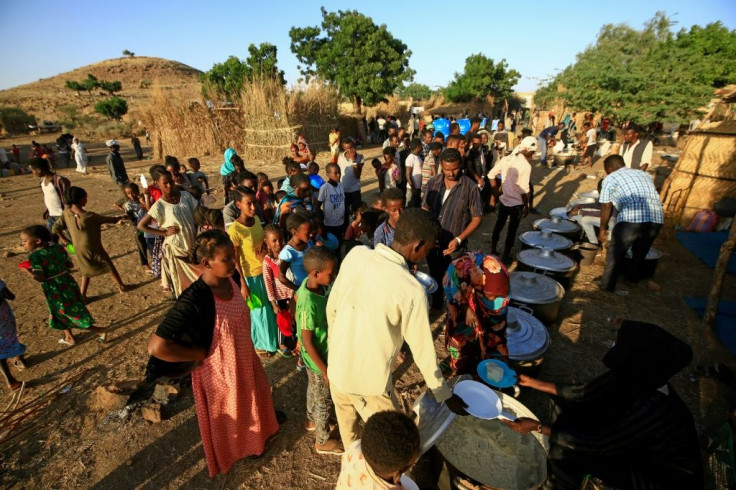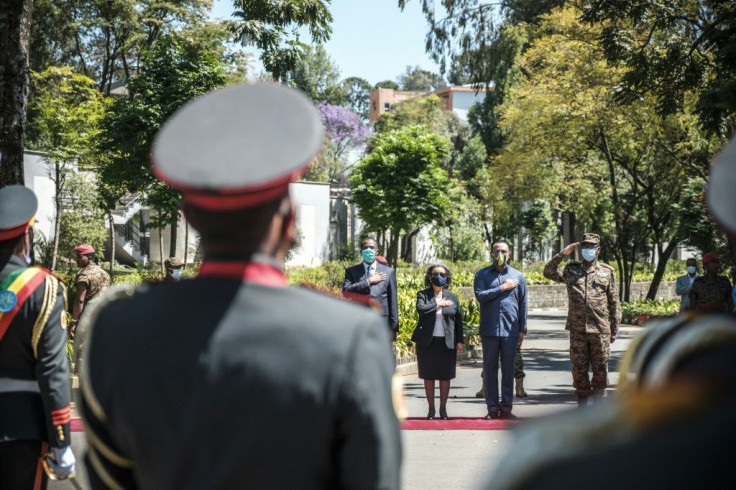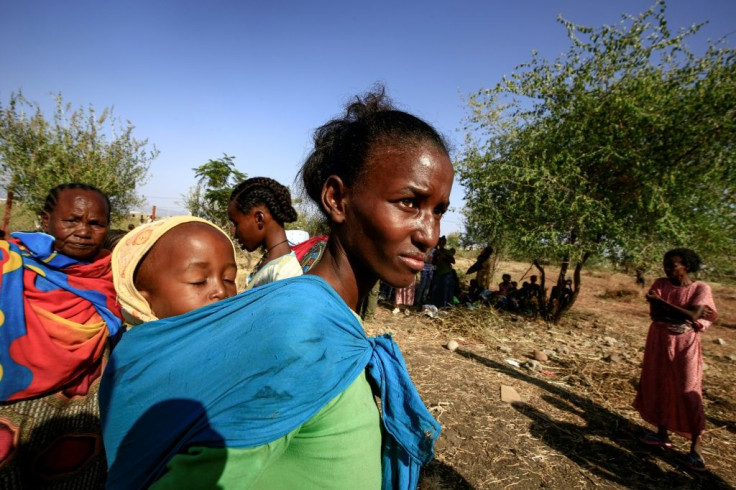Ethiopia PM Issues 72-hour Ultimatum To Dissident Region's Leaders
Ethiopia's Prime Minister Abiy Ahmed on Sunday gave the leaders of a dissident northern region 72 hours to surrender ahead of a threatened all-out assault on Tigray's capital, Mekele.
Abiy -- last year's Nobel Peace Prize winner -- launched the military campaign against the Tigray People's Liberation Front (TPLF) on November 4, accusing it of attacking two federal military camps in the region, and of defying his government and seeking to destabilise it.
A communications blackout in the region has made claims from both sides difficult to verify but hundreds of people are reported to have been killed while tens of thousands have fled the fighting into neighbouring Sudan.
"Your journey of destruction is coming to an end, and we urge you to surrender peacefully within the next 72 hours, recognising you are at a point of no return," Abiy said in a statement aimed at the leaders of the TPLF party.
"Take this last opportunity," he added.

Abiy also called on the TPLF forces to "surrender peacefully" and urged the people of Mekele to side with the army "in bringing this treasonous group to justice"
Earlier in the day, the Ethiopian army had threatened to besiege the city of half a million and warned civilians to flee while they still could.
"The next decisive battle is to surround Mekele with tanks," Dejene Tsegaye, a military spokesman, told state broadcasters.

Dejene added a warning to Mekele's residents: "Save yourself. A directive has been communicated for you to dissociate yourself from this junta, after that there will be no mercy."
Abiy's government has claimed the capture of a string of towns in recent days, including the ancient city of Aksum and the town of Edega Hamus, 100 kilometres (60 miles) north of Mekele.
"Defence forces have controlled Edaga Hamus city, which is on the road from Adigrat to Mekele," the Ethiopia State of Emergency Fact Check, a government agency, said Sunday.
"The defence forces are currently marching on the campaign's last goal, Mekele city."

TPLF leader Debretsion Gebremichael promised "fierce fighting" to hold up the Ethiopian Defence Forces (EDF) advance. "They'll continue to pay for every move," he told AFP.
Debretsion warned that an assault on Mekele will not be the conflict's endgame.
"As long as the occupation force is in Tigray, fighting will not stop," he said.
The TPLF led the overthrow of Mengistu Hailemariam, head of Ethiopia's military Derg regime, in 1991 and dominated the country's politics until Abiy became prime minister in 2018.
The party continues to rule Tigray, one of 10 regional states under Ethiopia's system of federalism whereby regions are delineated by ethnicity and language.
TPLF leaders have complained of being sidelined by Abiy and blamed for the country's woes.
The bitter feud with the central government led the TPLF to hold their own elections this year despite the postponement of national polls due to the coronavirus pandemic.
Abiy has spurned all calls for peace, including from the African Union -- which plans to send three former national presidents as special envoys in the coming days -- and from the US and the UN which has warned of a looming humanitarian disaster.
His government regards the TPLF as a criminal administration and appears intent on winning the military battle rather than negotiating.
Military action has already spread beyond Tigray's borders with the TPLF firing rockets at Asmara, the capital of neighbouring Eritrea to the north, which it accuses of supporting the Ethiopian government, and at the city of Bahir Dar to the southwest.
The campaign has seen warplanes bombing Tigray and heavy fighting.
Amnesty International has documented a gruesome massacre in which "scores, and likely hundreds, of people were stabbed or hacked to death" in the southwestern town of Mai-Kadra.
The UN has called for the opening of humanitarian corridors to allow aid agencies access, and has said it is preparing for as many as 200,000 refugees to flee the unrest in the coming months.
© Copyright AFP 2024. All rights reserved.





















